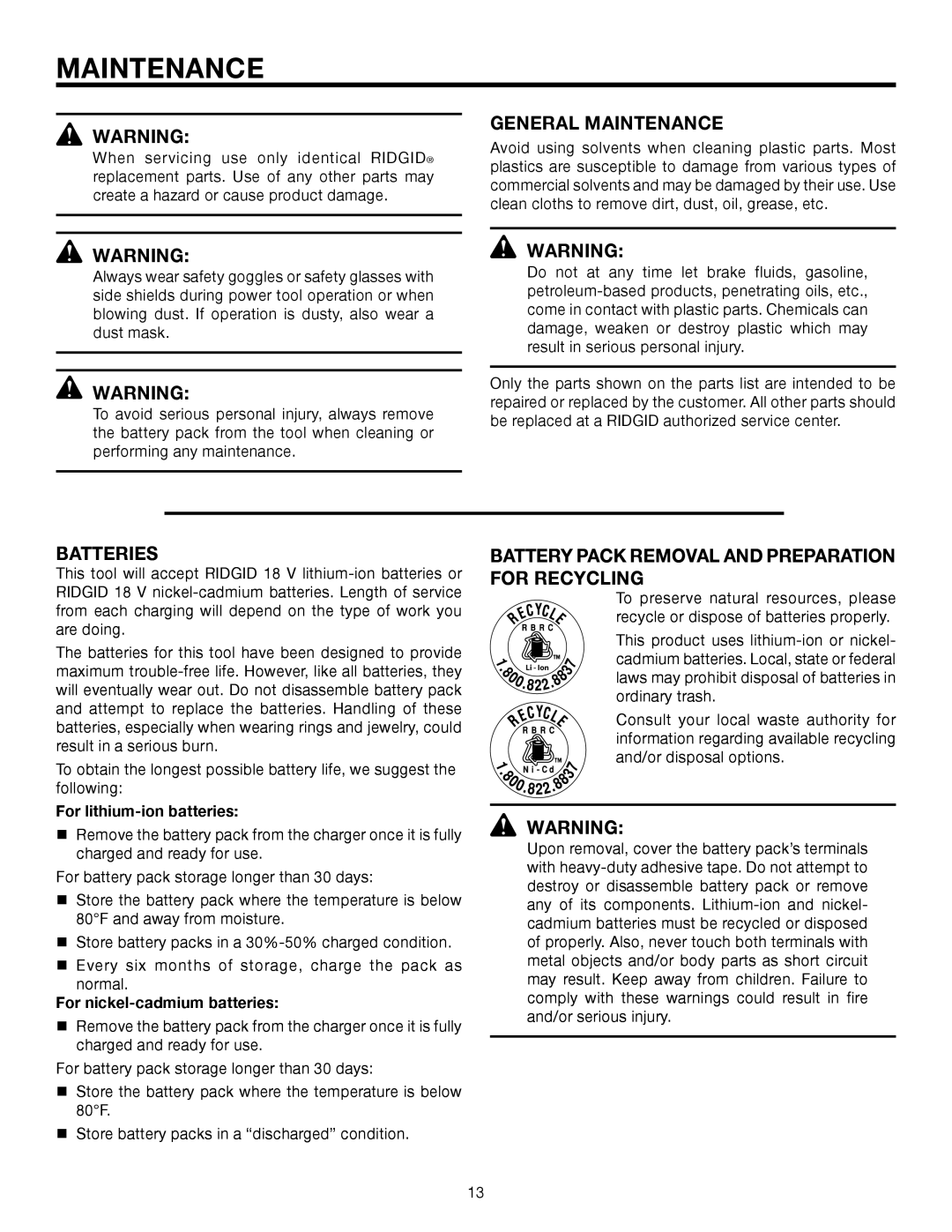
MAINTENANCE
WARNING:
When servicing use only identical RIDGID® replacement parts. Use of any other parts may create a hazard or cause product damage.
GENERAL MAINTENANCE
Avoid using solvents when cleaning plastic parts. Most plastics are susceptible to damage from various types of commercial solvents and may be damaged by their use. Use clean cloths to remove dirt, dust, oil, grease, etc.
WARNING:
Always wear safety goggles or safety glasses with side shields during power tool operation or when blowing dust. If operation is dusty, also wear a dust mask.
WARNING:
To avoid serious personal injury, always remove the battery pack from the tool when cleaning or performing any maintenance.
WARNING:
Do not at any time let brake fluids, gasoline,
Only the parts shown on the parts list are intended to be repaired or replaced by the customer. All other parts should be replaced at a RIDGID authorized service center.
BATTERIES
This tool will accept RIDGID 18 V
BATTERY PACK REMOVAL AND PREPARATION FOR RECYCLING
RIDGID 18 V
The batteries for this tool have been designed to provide maximum
To obtain the longest possible battery life, we suggest the following:
Li - Ion
To preserve natural resources, please recycle or dispose of batteries properly.
This product uses
Consult your local waste authority for information regarding available recycling and/or disposal options.
For lithium-ion batteries:
Remove the battery pack from the charger once it is fully charged and ready for use.
For battery pack storage longer than 30 days:
Store the battery pack where the temperature is below 80°F and away from moisture.
Store battery packs in a
Every six months of storage, charge the pack as normal.
For nickel-cadmium batteries:
Remove the battery pack from the charger once it is fully charged and ready for use.
For battery pack storage longer than 30 days:
Store the battery pack where the temperature is below 80°F.
Store battery packs in a “discharged” condition.
WARNING:
Upon removal, cover the battery pack’s terminals with
13
